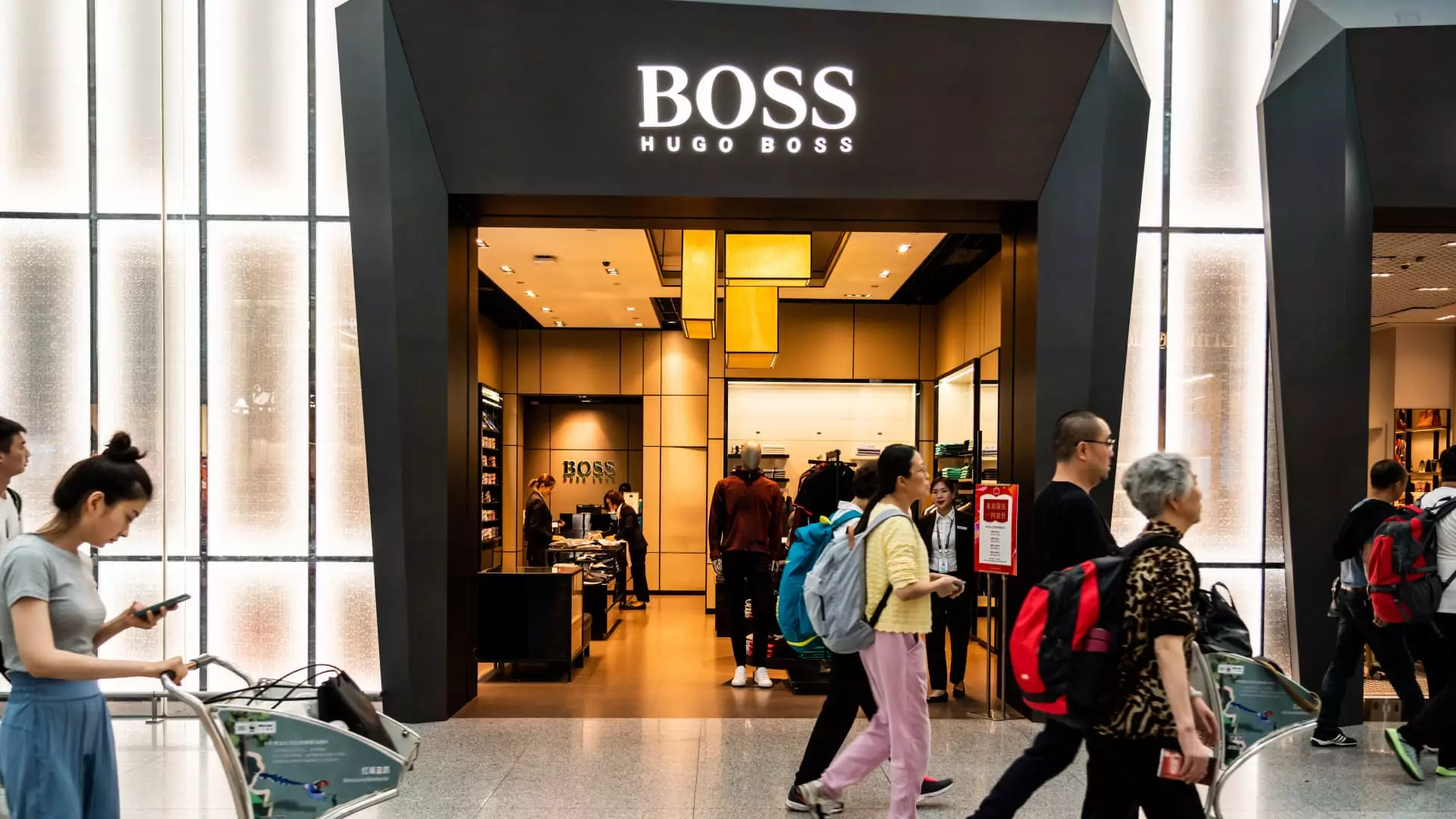The announcement of a cut in sales outlook by Hugo Boss had a significant impact on the company’s shares, causing them to plunge by as much as 10% in a single day. This sudden drop in share prices reflects the market’s reaction to the company’s revised forecast, which indicated a decrease in full-year sales compared to previous estimates. The reasons cited for this revision included “persistent macroeconomic and geopolitical challenges,” with specific mention of difficult market conditions in China and the U.K. This news highlighted the ongoing struggles faced by high-end fashion brands in the luxury sector.
Hugo Boss’ preliminary report for the second quarter revealed a 1% decline in group sales to 1.02 billion euros. This decrease was primarily driven by weaker sales trends in Asia and Europe, leading to a 42% year-on-year slump in operating profit to 70 million euros. The company attributed this performance to both softer sales as well as strategic investments in the business. Despite these challenges, CEO Daniel Grieder expressed optimism about the company’s ability to achieve profitable growth in the second half of the year.
The company acknowledged the impact of global macro uncertainty on its operations, with Grieder highlighting the need for continued investment in Hugo Boss’ strong brands, BOSS, and HUGO. While the timing of a macroeconomic recovery remains uncertain, the company’s long-term strategy aims to drive above-trend growth and capture additional market share. This forward-looking approach reflects Hugo Boss’ commitment to navigating through challenging market conditions and emerging stronger in the future.
Hugo Boss is not alone in facing difficulties within the luxury sector, as other high-end brands such as Burberry and LVMH have also reported slowdowns in sales. Burberry’s recent profit warning and CEO change, coupled with Richemont’s modest sales growth, underscore the broader challenges facing luxury retailers. The persistent weakness in Chinese sales, in particular, has been a common theme across multiple companies, signaling ongoing struggles in one of the sector’s key markets.
While Chinese consumer spending has been impacted by the pandemic, there are signs of resilience in the market. Swetha Ramachandran from Artemis Fund Managers highlighted the shift in luxury demand, with Chinese shoppers now returning to overseas purchases as travel restrictions ease. This trend has benefitted other Asian destinations like Japan, where international shoppers have shown a preference due to a weak yen. The evolving patterns of Chinese consumer behavior may offer opportunities for luxury brands to adapt their strategies and capitalize on changing market dynamics.
Hugo Boss’ shares plunge and revised sales outlook reflect the challenges faced by the luxury sector amidst global macroeconomic uncertainty. The company’s focus on brand investment and strategic growth initiatives signals a long-term commitment to overcoming market pressures and driving sustainable performance. By understanding industry trends and consumer behavior shifts, luxury retailers can position themselves for success in a dynamic and competitive market landscape.

